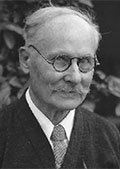the First Week of Lent
Click here to join the effort!
Bible Commentaries
Concordant Commentary of the New Testament Concordant NT Commentary
New Testament
Jesus' life, teachings, and fulfillment of Old Testament prophecies as the Messiah. Mark
A fast-paced account of Jesus' ministry, focusing on his actions and sacrificial death. Luke
Jesus' life, emphasizing compassion for the marginalized and the universal scope of salvation. John
Theological reflections on Jesus as the Word of God, focusing on his divine nature and mission. Acts
The early church's growth, the apostles' ministry, and the spread of the Gospel. Romans
A theological treatise on salvation, grace, faith, and righteousness through Jesus Christ for all. 1 Corinthians
Paul addresses divisions, immorality, and spiritual gifts in the Corinthian church. 2 Corinthians
Paul's defense of his apostleship, his sufferings, and the power of God's grace. Galatians
Paul's defense of the Gospel of grace against legalism, emphasizing faith in Christ alone. Ephesians
Paul's teachings on the church's unity, spiritual blessings in Christ, and Christian conduct. Philippians
A letter of joy and encouragement, urging humility and faithfulness amid persecution. Colossians
Paul's emphasis on Christ's supremacy and warnings against false teachings. 1 Thessalonians
Encouragement to a young church, with teachings on holiness and Christ's return. 2 Thessalonians
Clarifications about Christ's return and exhortations to stand firm in faith. 1 Timothy
Guidance for church leadership, sound teaching, moral conduct, and defending the truth of the gospel. 2 Timothy
Paul's final exhortations to Timothy, emphasizing perseverance and faithfulness. Titus
Instructions for establishing order in the church, promoting sound doctrine, and living with integrity. Philemon
A personal appeal for the forgiveness and restoration of a runaway slave, Onesimus. Hebrews
An insightful look at Christ's supremacy, priesthood, and the fulfillment of prophecies. James
Practical wisdom on living out one's faith through good works and righteous behavior. 1 Peter
Encouragement for suffering Christians to remain faithful and hopeful in their trials. 2 Peter
A reminder to grow in faith, resist false teachings, and remain steadfast awaiting His return. 1 John
Teachings on love, obedience, and assurance of salvation through fellowship with God. 2 John
A letter encouraging love, obedience to God's commands, caution against teachings that deny Christ's truth. 3 John
A personal letter commending hospitality and warning against arrogance in church leadership. Jude
A strong warning against false teachers and a passionate call to defend the faith and uphold the truth. Revelation
Apocalyptic visions of God's ultimate victory, Christ's return, and the new heaven and earth.
Author's Biography
Adolph Ernest Knoch, often referred to as A. E. Knoch, was a prominent figure in the realm of biblical scholarship and theological discourse during the early to mid-20th century. Born on September 22, 1874, in Albany, New York, Knoch displayed a fervent passion for religious studies from an early age. He pursued higher education at New York University, where he delved into the intricacies of theology and biblical interpretation.
Knoch's scholarly journey took a significant turn when he encountered the teachings of J. N. Darby, a key figure in the Plymouth Brethren movement. Influenced by Darby's dispensationalist theology, Knoch began to develop his own distinctive theological framework, which would become known as "ultradispensationalism." This theological perspective emphasized the radical distinctions between different periods or dispensations in biblical history, particularly regarding the church and Israel.
Throughout his career, Knoch dedicated himself to the study and interpretation of scripture, producing a substantial body of work that reflected his deep commitment to understanding the Bible in its original context. He served as the editor of "Unsearchable Riches," a periodical publication that disseminated his theological insights and interpretations to a broader audience.
One of Knoch's most notable contributions to biblical scholarship is his translation and commentary on the New Testament, commonly referred to as the "Concordant Literal New Testament." This translation aimed to capture the precise meanings of the original Greek text, often departing from traditional translations to offer fresh perspectives on familiar passages.
Despite facing criticism and controversy from mainstream theological circles, Knoch remained steadfast in his convictions, advocating for a rigorous and systematic approach to biblical interpretation. His writings continue to be studied and debated by scholars and theologians interested in exploring alternative perspectives on the scriptures.
Adolph Ernest Knoch passed away on October 28, 1965, leaving behind a legacy of theological inquiry and scholarly engagement that continues to inspire individuals in their quest for a deeper understanding of the Bible.
